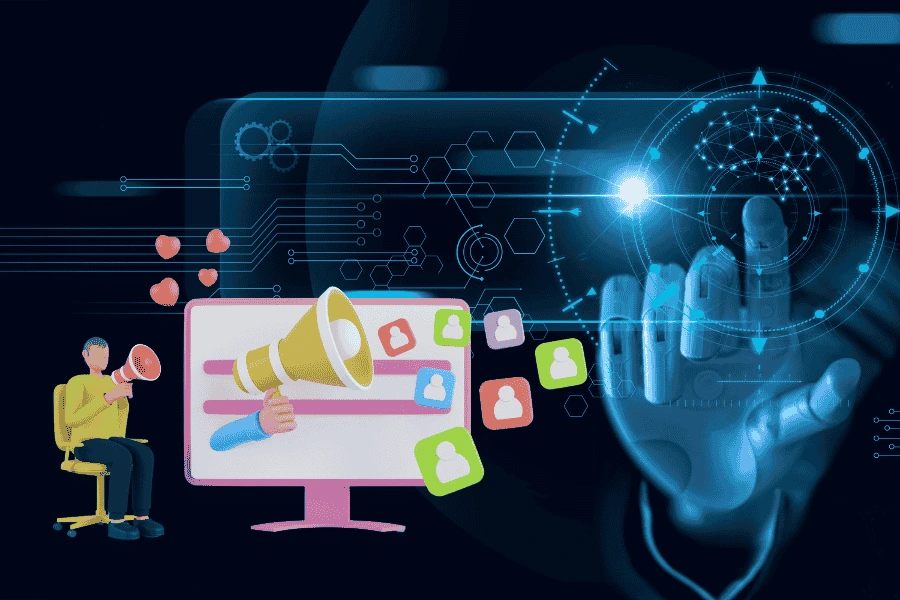Ad Personalization Engines: The Data Science Behind Google Ads Targeting
Introduction
In the fast-paced world of online marketing, reaching the right audience with the right message is crucial. Google Ads uses advanced ad personalization engines to deliver tailored ads that match individual users’ preferences and behaviors. This approach to personalized ad targeting not only enhances digital marketing personalization but also boosts engagement and return on investment for advertisers.

How Google Collects and Uses User Data
Google’s ability to personalize ads relies on gathering data from various sources such as search queries, browsing habits, location information, and user interactions with ads and apps. This extensive user data is analyzed through powerful data analytics tools to create anonymized user profiles. These profiles help uncover audience insights, which are critical for programmatic advertising and behavioral advertising techniques aimed at improving ad relevance.
Creating User Profiles: The Basis for Effective Personalization
User profiles are built dynamically, combining information from multiple devices and behavioral patterns like search history and ad interactions. Google integrates contextual signals such as device type and time of day to perform customer segmentation and audience targeting. This multidimensional profiling ensures that ads are highly relevant and aligned with each user’s interests and current situation.
The Role of Machine Learning in Google Ads
Machine learning plays a vital role in optimizing Google Ads. Techniques such as collaborative filtering, deep neural networks, and reinforcement learning analyze vast amounts of data to improve google ads targeting algorithms. Additionally, natural language processing helps interpret user queries, enabling predictive targeting and enhancing ad relevance. These methods support sophisticated bidding algorithms that select the best ads based on expected user engagement.
Real-Time Bidding: Instant Personalization in Action
Google’s real-time bidding system enables ads to be personalized instantly. When a user visits a website or performs a search, Google evaluates their profile and runs an auction among advertisers targeting similar audiences. The winning ad is displayed within milliseconds, balancing the advertiser’s bid and predicted performance. This process contributes significantly to google ads conversion optimization by delivering timely and relevant ads.
Prioritizing Privacy While Delivering Personalized Ad
Personalization must be balanced with strong privacy protections. Google employs data anonymization and aggregation techniques to safeguard user information and complies with privacy laws such as GDPR and CCPA. Users have control over their ad preferences through Google’s privacy settings. Innovative methods like federated learning and differential privacy are being developed to maintain ad effectiveness while protecting personal data.
Benefits of Personalization for Advertisers and Users
For advertisers, leveraging ad personalization algorithms and machine learning in Google Ads results in more efficient campaigns and higher engagement rates. Features like automated targeting and dynamic ad personalization allow marketers to deliver messages tailored to specific audience segments. For users, this means fewer irrelevant ads and a more personalized online experience.
Emerging Trends in Ad Personalization
Looking to the future, Google is enhancing its machine learning personalization with AI-driven creative optimization that adapts ad content in real time. The incorporation of voice and visual search data, improved remarketing personalization, and advanced predictive analytics will further refine campaign optimization. These developments will be implemented alongside privacy-focused innovations to address any concerns related to google ads personalization privacy.
Conclusion
Google Ads’ personalization engines exemplify how data-driven advertising can connect advertisers with the right audiences efficiently and responsibly. By combining sophisticated data analytics, machine learning techniques, and real-time bidding processes, Google delivers highly relevant ads while prioritizing user privacy. As technology advances, personalized advertising will continue to evolve, providing smarter and more respectful advertising experiences for both businesses and consumers.
Active Events
Data Scientist Challenges One Should Avoid
Date: August 14, 2024 | 7:00 PM (IST)
7:00 PM (IST) - 8:10 PM (IST)
2753 people have registered
Your Data Science Career Game-Changing in 2024: Explore Trends and Opportunities
Date: Aug 08, 2025 | 7:00 PM (IST)
7:00 PM (IST) - 8:10 PM (IST)
2811 people have registered
Bootcamps
Data Science Bootcamp
- Duration:8 weeks
- Start Date:October 5, 2024
Full Stack Software Development Bootcamp
- Duration:8 weeks
- Start Date:October 5, 2024
